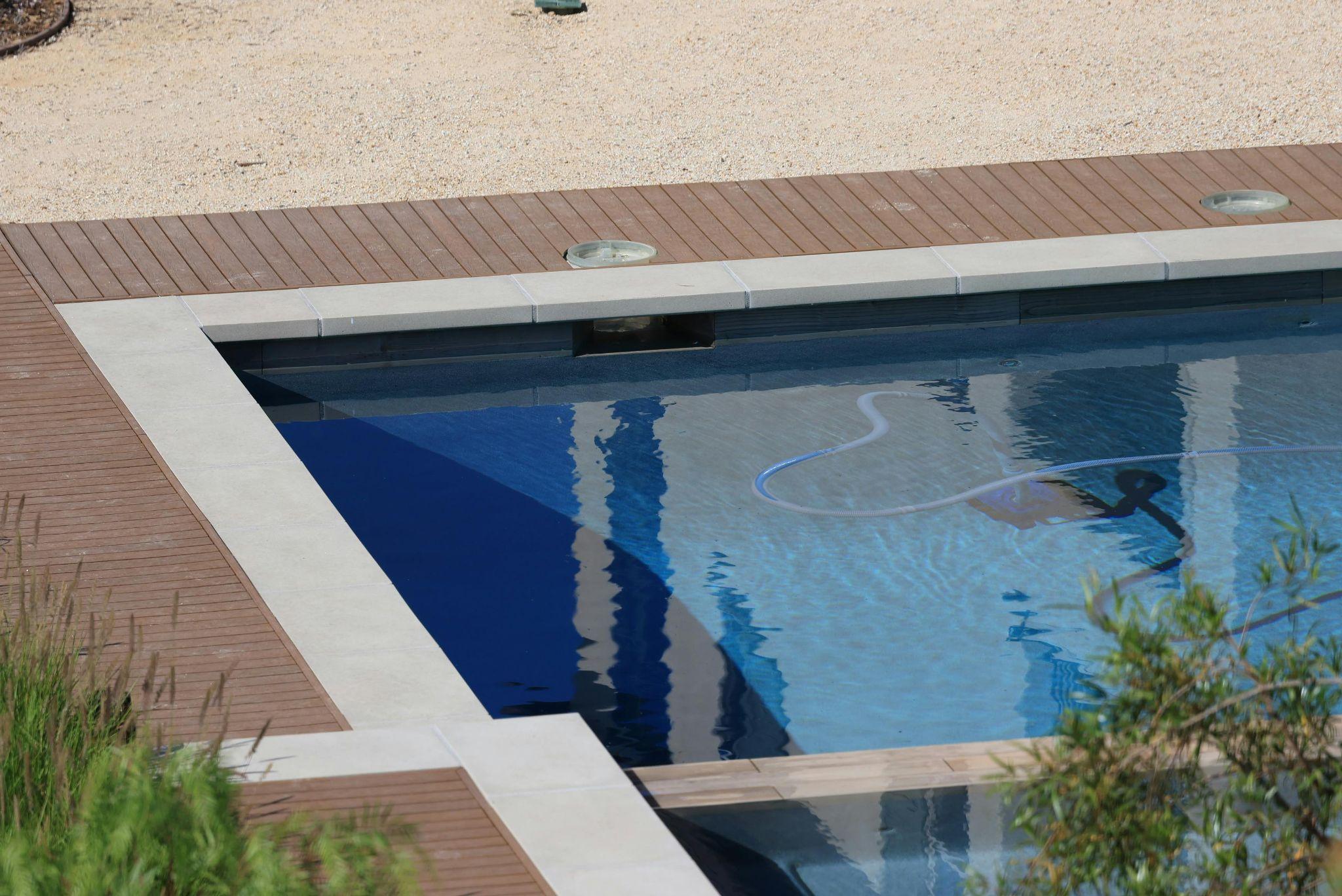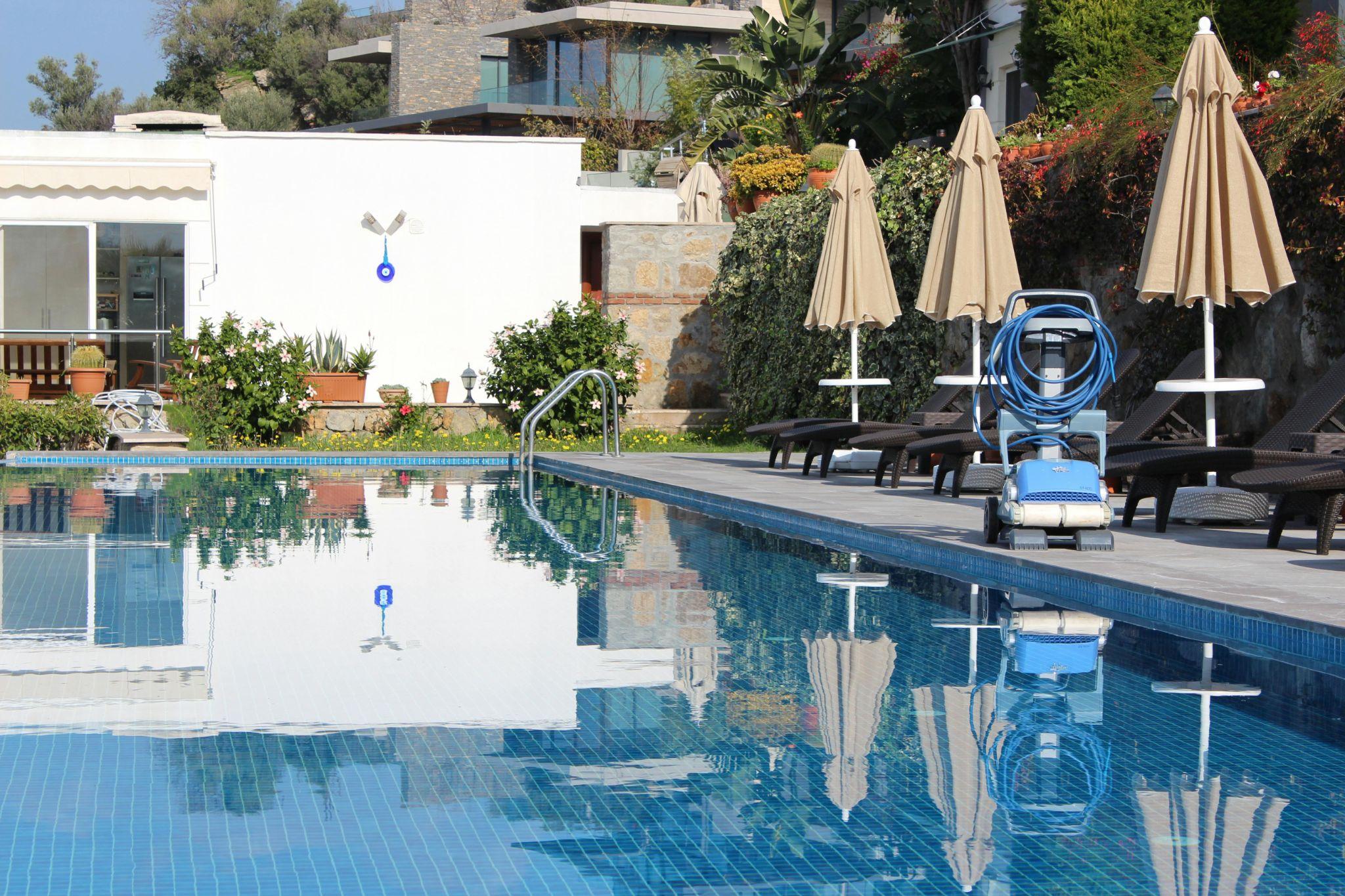The hot summer is coming, and the desire to refresh in the cold water of a swimming pool is rising. If you have already bought or are going to buy one in your backyard, you urgently need to review this article to check what type of pool cleaner to use to have clean water. Pool cleaners are used for mechanical cleaning walls and a floor from algae, dirt, and other stains; some can filter water from debris, bags, and other particles. Pool cleaners should be used for regular cleaning at least twice a week in addition to regular chemical treatment and everyday water filtration.
This article describes all types of pool cleaners and helps to choose one for your needs. Pool vacuums can be used for all sizes of swimming pools, sizes, shapes, above ground or inground. The only requirement is to check the manual to determine if the chosen model can handle your pool. We can highlight four types of pool cleaners: manual and automatic cleaners; last one is split to pressure-side, suction-side and robotic vacuums.
Manual pool cleaners
The easiest and cheapest type of pool cleaner is manual. The standard manual vacuum consists of a telescopic pole, vacuum hose, and vacuum head. The vacuum hose needs to be attached to the skimmer to collect all debris. Manual models are also called handheld, as the main power comes from humans. Suction power depends strongly on your filtration system; if your debris returns, your filtration system has lower power, and you need more time for cleaning.
There is also another type of handheld cleaner – battery powered. They do not require a connection to the skimmer, and some models are very powerful, working from rechargeable batteries. No unique technique is required for cleaning with both models; first, collect all debris from the surface and then clean the deepest end. If you like to exercise, manual pool cleaners are the perfect helpers!
Pros
|
Cons
|
|---|
Automatic pool cleaners

If you consider that manual cleaning takes too much from your swimming time, then choose automatic models! Automatic pool cleaners save both your time and money, as they extend the lifetime of your primary pool filter and reduce the time of pool pump usage. You also can save some money on chemicals, as with regular maintenance, fewer algae and dirt will be created in the water. The main difference between automatic pool cleaners is the requirement of connection to the pool pump (on the suction or pressure side) or fully independent from pool equipment (robotic).
Suction-side pool cleaners
This type of cleaner is the most affordable among automatic cleaners. All suction cleaners require connection to the suction line of your filtration pump – to a skimmer or dedicated suction line for cleaners. To make the cleaner work, your pump should run to make the vacuum power move and suck all debris. All collected debris will come to your primary filter, increasing its load. You need to install an extensive filtration system to make the cleaner work efficiently with a filtration system at the same time.
Suction side cleaners work automatically based on internal algorithms and cover all floor surfaces; some models can even clean walls. These cleaners can have different wheels, forms, sizes, navigation algorithms, and brushes. We recommend choosing models with wide cleaning paths, advanced navigation (to avoid missing spots) and bristle scrubbers for tough dirt on pool surfaces.
Pros
|
Cons
|
|---|
Pressure side Cleaner
This type of cleaner is connected to the existing pool equipment to the return lines or can require connection to a separate booster pump. These cleaners collect all debris using water vortex into their filter bag. In addition to the venture propelling of large garbage, the cleaner can also use the tail to stir small particles into a filter and push it in front with a thrust jet. They will be especially good for pools with many leaves and large debris, as some models have large external bags.
These cleaners extend the life of your pool’s filter and do not create additional load on it. They can even work with full filter bags, such as not collecting the debris but making it flow on the water surface for collecting by the natural filtration system.
Pros
|
Cons
|
|---|
Robotic Pool Cleaner

The most advanced automatic pool cleaners working independently from all pool equipment is the perfect solution for owners who want to set a schedule and forget about pool cleaning. Unfortunately, most of the robots require an electricity connection, which creates limitations for the pool size. The cable length should be at least 10 m longer than the pool length. For swimming pools with complex geometry or if you do not have access to electricity, there are some cordless cleaners. There is not much to choose from among cordless, only Aiper pool cleaners and several Dolphin models work on rechargeable batteries, and there are some solar robot pool cleaners (Ariel, Betta).
Robotic cleaners have built-in filters with different mesh sizes; you can choose per your most recent debris. To clean the filter, you need only to use a garden hose. This is the only maintenance you need regularly.
Pros
|
Cons
|
|---|
Conclusion
You can find many pool cleaners on the market. Your choice should be based on your budget, size, pool type, and manufacturer. The reliable and popular brands are Zodiac, Hayward, Dolphin, Pentair, Polaris, Maytronics, and Aiper. All pool cleaners significantly reduce the necessity to use chemicals to kill bacteria and algae in your pool. In addition, automatic pool cleaners can work autonomously at night, giving you more time for rest than physical exercise.

